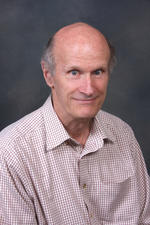Truman Bewley
Alfred Cowles Professor of Economics
 Truman Bewley, B.A. Cornell University, Ph.D. University of California at Berkeley, faculty member at Yale since 1983: You have had a remarkable career, in which you made long-lived contributions both to your discipline and to your department.
Truman Bewley, B.A. Cornell University, Ph.D. University of California at Berkeley, faculty member at Yale since 1983: You have had a remarkable career, in which you made long-lived contributions both to your discipline and to your department.
You began your career as a mathematical economist, making fundamental advances in the existence of economic equilibria and decision-making under uncertainty. In an extraordinary series of papers, you invented what have come to be known as “Bewley models,” now routinely taught as part of core curricula in graduate, and even undergraduate, economics. These models demonstrate how to construct economic equilibria with heterogeneous consumers facing earnings risk in the labor market. They now underlie much of the modern economic research on income and wealth inequality.
Most economists would have spent the rest of their careers building on this pioneering work because it has so many real-world applications—and in fact many other economists influenced by you have indeed done so. You, however, are that rare academic who has truly followed the beat of his own drummer, courageously shifting gears in the middle of your career to study different important economic questions.
That about-face led you to study a central and ancient question in macroeconomics—how wages change during recessions—using a methodology completely different and radical, at least to economists: interviewing participants, both workers and employers, in the labor market. You undertook hundreds of such interviews over many years, which culminated in your influential book Why Wages Don’t Fall During a Recession. The book argues convincingly that the morale of the labor force is a critical factor in its success, one typically absent from standard economic models of recessions. In an ongoing years-long project, you are now using this same methodology to understand how prices in all kinds of markets are set, again interviewing hundreds of actual decision-makers.
At the same time that you have pursued pioneering research, you have earned an unparalleled record of running the department’s Ph.D. program—one of the world’s finest in no small part because of your wise and steadfast leadership. You have served as director of graduate studies for a remarkable quarter-century, ending your tenure only this year. During this time, through your quiet but firm leadership, the doctoral program in Economics at Yale has become one of the best in the world, attracting the most able students from all countries and routinely placing them at top positions in academia, government, and business. The hallmarks of the program are its high standards of excellence and its collegiality and fairness in training and nurturing students. Although we will deeply miss your unmatched wisdom in adapting to new challenges, the foundations you laid will allow the department to carry this venerable culture and tradition into the future.
The department of Economics considers you a gentleman and a scholar, Truman, irreplaceable, but with a legacy that will continue on and on.